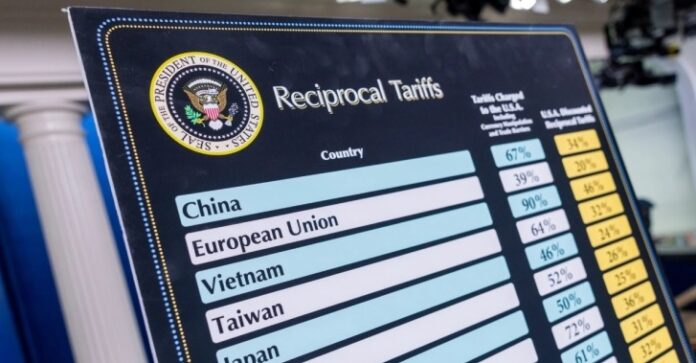EU to impose countermeasures on US customs duties on steel and aluminum on Wednesday

The European Commission will adopt countermeasures next week in response to US tariffs on aluminum and steel imports, while the response to the introduction of car customs and reciprocal customs duties of 20 percent will follow a number of products after analyzing and consulting with member states.
Since March 12, the decision to introduce 25 % customs duties on the import of aluminum and steel in the United States has been in force, and from April 3, 25 % for all cars and auto parts that have not been produced in the United States.
On April 2, US President Donald Trump declared a trade war on the entire planet and announced reciprocal customs duties, at least 10 % for all, and even higher customs duties on about 60 countries, which will take effect on Wednesday, April 9. He introduced 20 % customs duties for the European Union and 34 % for China.
It remains unclear whether the announced tariffs will remain permanent or part of the tactics of getting concessions. Trump said the customs would give him « great negotiating power ».
By the middle of last week, the Commission had consulted with US-based steel and aluminum customs countermeasures and the decision is expected to be made on Wednesday and take effect on April 15.
The Commission may make a decision unless it is opposed by a qualified majority (55 % of member states representing at least 65 % of the EU’s total). In case there is no qualified majority either against the proposal, the Commission can independently make a decision.
The Commission has announced a proportional response of up to 26 billion euros, which corresponds to the economic range of US customs duties.
Regarding the countermeasures of the US Customs Car and auto parts and for reciprocal customs duties of 20 percent, the Commission points out that it will not rush, that it wants to analyze in detail.
The Commission has based its approach on three elements: negotiations, countermeasures and trade diversification. She wants to try to find a solution to unjustified and harmful customs duties through negotiations. If this is not possible to solve through negotiations, countermeasures will follow.
« After the US administration’s decision to introduce comprehensive customs duties on European Union goods, the EU will respond calmly, carefully and gradually and above all, while we calibrate our response … We want to give negotiations every chance to find a fair agreement, in favor of both sides, » said commissioner.
The Commission does not want to say what measures could take and emphasize that « everything is on the table ».
« All the options are at the table and we do not want to speculate what we will do, » a senior commission official who wanted to remain anonymous told reporters. At the same time, we will be careful that the countermeasures are as painful for the United States, while at the same time bringing as little damage to Europe, ie to introduce customs duties on American products for which there is an alternative.
« We will not introduce customs duties on products we do not produce, while Americans have introduced customs duties, for example, for coffee or bananas, which they do not produce at all, » said an unnamed commission official. He added that Europeans have alternatives, for example for Harley Davidson motorcycles, Levi’s or soybean jeans.
According to the commission’s first estimates, reciprocal customs duties of 20 % relate to about 290 billion euros of European export to the United States, which would generate the Americans 58 billion euros.
To cars and auto parts exported by about 66 billion euros, customs revenue of 25 percent would amount to 16.5 billion euros, while € 26 billion in exports of aluminum and steel would be 6.5 billion euros.
The Commission has exclusive jurisdiction over foreign trade and Member States cannot directly negotiate with the Trump administration.





:format(webp)/s3/static.nrc.nl/wp-content/uploads/2024/03/08144852/data112647696-322d44.jpg)

